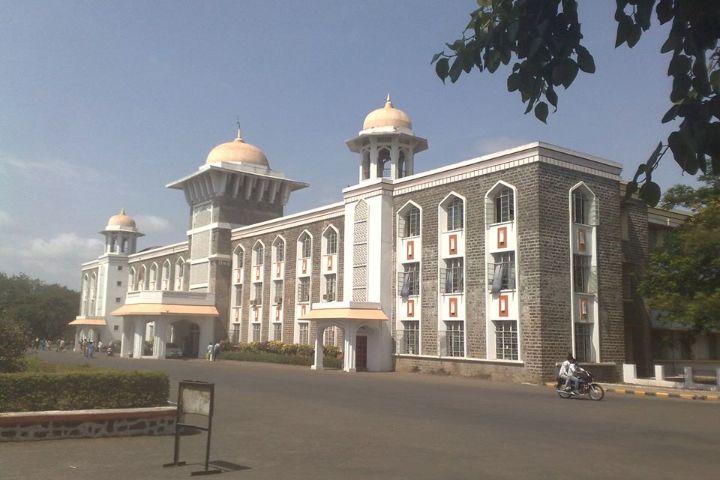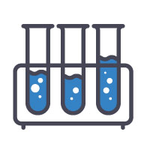
Biopharmaceutics Course Details - Fees, Subjects, Syllabus, Duration, Eligibility, Career Scope
Degrees offered: B.Sc.(Hons), M.Sc., M.E /M.Tech., Ph.D, M.A.
What is Biopharmaceutics
Biopharmaceutics- The complex processes of drug delivery, the subsequent response and reaction to the drugs and related research together comprise Biopharmaceutics. It is the advanced domain of pharmacy that deals with the study of chemical, physical and biological properties of various pharmaceuticals. It includes the study of activities and related mechanisms of action in living organisms. The biopharmaceutics course is often concerned with advanced biotechnological research outcomes. It is the study of optimisation of the pharmacological and therapeutic activities of drugs in living organisms and involves identification of the factors influencing their bioavailability.
Various advanced techniques in biotechnology like recombinant technology, immune therapeutics, and genetic engineering are used to derive highly specific and targeted pharmaceutics.
The pharmaceutical industry is constantly in need of research and innovation professionals. Biopharmaceutics courses equip a person with the fundamental knowledge essential to understanding the complex mechanisms of pharmaceuticals in living beings. The career prospects of biopharmaceutics professionals are really good. Research in virology, cancer treatment and other fields of medicine are throwing open new windows to exciting challenges every day.
Biopharmaceutics Courses: Degrees and Levels
Diploma level (3-year course)- A diploma in pharmacy can be taken up immediately after completing class 10+2. A diploma equips a student with beginner-level skills in pharmacology, biological science and biotechnology and empowers him to pursue entry-level pharmacist jobs. There are basic biopharmaceutics courses that are introduced in a diploma.
Undergraduate level (4-year course)- One can take up an undergraduate course after completing class 10+2. The lateral entry is for students who have pursued a diploma already. To pursue biopharmaceutics, an undergraduate degree is essential in the following areas.
Bachelor of Pharmacy (B. Pharm) – 4 years
Bachelor of Pharmacy (B. Pharm) Lateral Entry – 3 years
Bachelor of Pharmacology (Hons.) – 4 years
Bachelor of Pharmacy (Ayurveda) – 4 years
Postgraduate level (2-year course)- There are many areas in which specialisation can be pursued, we have listed down the major areas related to biopharmaceutics. All of these courses need a solid foundation in pharmacology and hence an undergraduate degree of B.Pharm is mandatory.
Master of Pharmacy (M.Pharm) Biopharmaceutics– 2 years
Master of Pharmacy (M.Pharm) Pharmaceutical chemistry– 2 years
Master of Pharmacy (M.Pharm) Drug Discovery and Development– 2 years
Pharm. D (post-baccalaureate)– 3 years
A research-based Pharm. D (Post Baccalaureate) is also possible to pursue a biopharmaceutics. To pursue, candidates are required to have an undergraduate degree.
Doctoral program (research-based) PhD in Pharmaceutical Sciences (3 years)- scholars can continue with their research and academic career after a PhD.
Biopharmaceutics- Minimum and Maximum Duration
The diploma is achieved in a minimum of 24 months. Undergraduate courses require a minimum of 48 months’ of study for it to be completed. Postgraduate studies require 24 months of study. Research-based studies at masters level (Pharm. D) take a minimum of 36 months of study and at the doctoral level, it takes 36 to 48 months. The usual time limit of maximum graduation time is 48-72 months including any extended duration for diploma and undergraduate level courses of pharmacy. The postgraduate specialization in biopharmaceutics also allows for a stipulated time of 36-48 months as maximum allowed time. It is not unusual for students to take as long as 84-96 months to complete their study.
Eligibility Criteria (UG & PG) of Biopharmaceutics
The minimum criterion to qualify for admission into government colleges is 60% in class 10+2 with the subject combination of maths, physics, biology and chemistry. Some of the private colleges have the eligibility criteria set at 50% in both class 10 and class 12 from a recognised examination board. However, the eligibility for SC/ST/PwD category students is reduced by 5%. The requirements also vary greatly for private colleges.
The postgraduate (M.Pharm) biopharmaceutics course(s) has the minimum requirements of a first-class score in B.Pharm for admission. The eligibility criteria include an undergraduate B. Pharm with a minimum of 60% marks or 6.0 (out of 10.0) Grade Point Average (GPA) in the disciplines of Pharmacology from an AICTE and Pharmacy Council of India recognised colleges.
Admission Criteria for Biopharmaceutics after Class 12
The basic admission criterion is to pass class 10+2. At diploma level, the programme is most accessible to all students who have completed class 12 with science subject combination. For admission in undergraduate level, candidates must pass class 12 with subjects such as physics, chemistry, biology and mathematics. There is often a minimum qualifying percentage of around 50-60% for admission. For master's programmes, the compulsory criteria are an undergraduate degree in pharmacy and obtaining minimum qualifying marks.
Entrance Examinations for Biopharmaceutics
The following are the different types of entrance examinations for getting into a biopharmaceutics course.
Undergraduate level: In India, the AICTE and the Pharmacy Council of India are the regulatory bodies for colleges related to pharmacy. Various states have their own common entrance examinations that allow admission to respective state colleges.
Postgraduate and research: For postgraduate programmes, Graduate Pharmacy Aptitude Test (GPAT) is the major entrance examination for securing admission into the master of pharmacy (M. Pharm) courses. The rank and performance indicators in this are used for admission by almost all colleges for admission into biopharmaceutics courses. It is also considered for various scholarships and assistance.
Fees and Expenses of Pharmacy and BPH Courses: Minimum and Maximum
The tuition fee and college expenses for popular biopharmaceutics courses are as follows:
Diploma level: Total fee is in the range of Rs.10, 000 and Rs.1, 00,000 and varies largely based on government and private colleges.
Undergraduate level: The total fees for all years of study entirely depend on the college and it is a minimum of Rs.60,000 and maximum of Rs.18,00,000. The private colleges charge on the higher end while government colleges are almost free of cost.
Postgraduate and research: The postgraduate courses’ fees are in the range of Rs.40,000 to Rs.3,00,000 for the entire duration of 2 years.
College Predictors VIEW ALL
Scope of Biopharmaceutics in India and Abroad
Biopharmaceutics is a field that has emerged out of the intersection of biotechnology and pharmaceutics. Both biotechnology and pharmaceutics have a great scope and tremendous potential for future growth. The pharmaceutical industry is something that is known as a recession-proof industry, often standing high even in times of economic crisis. In India, the pharma industry is one of the largest in the world. Many global giants manage their entire production from India. It has a very innovation-friendly environment that engages in not only production but also the creation of new pharmaceuticals, therapeutics and enzymes.
The pharma and allied industries in foreign countries enjoy even more prominence and open up a large number of opportunities for the students of biopharmaceutics courses. Many companies, big and small, have been emerging with a wide array of research-based innovations. A robust pipeline for the drug production pathways has been built and established by all these players. Biopharmaceutics plays one of the most significant roles in all of this.
Popular Online Pharmacy Courses and Certifications
Course Fees Biopharmaceutics
| Minimum Fees | Maximum Fees | |||
|---|---|---|---|---|
| Private | Government | Private | Government | |
| PG | ||||
Course Subjects
The list of the major course subjects for both undergraduate (pharmacy) and postgraduate BPH programs is as follows:
Basic Subjects in pharmacy and related subjects
English / language
Physical chemistry
Organic chemistry
Human physiology
Biophysics
Genetics
Introduction to pharmacology
Thermodynamics
Biochemistry and chemical biology
Communication and life skills
Various specialization courses in biopharmaceutics based M.Tech course:
Introduction to biopharmaceuticals and biogenerics
Pharmacodynamics
Pharmacokinetics
Organic chemistry
Pharmacogenomics and genetic engineering
Molecular genetics
Analytical techniques in bio-pharmaceutical technology
Immunopharmacology
Environmental biotechnology
Nanobiotechnology
Enzyme technology and biocatalysis
Fermentation technology
Bio-entrepreneurship
Immunology
Biostatistics
Cell biology and biological systems
Environmental microbiology
Note: This list is prepared on a general basis and should not be taken for granted. Course subjects may vary from college to college.
Careers in Biopharmaceutics
Pharma is a very promising sector. Continuous R&D of pharmaceuticals require in-depth knowledge and ability to innovate and adapt, which forms the crux of training in a biopharmaceutics course. Clinical research including drug discovery and delivery to conducting trials everything needs a number of qualified scientists and research associates. This creates jobs at various levels for fresh graduates and experienced postgraduates of biopharmaceutics. The other arenas where students passing out from biopharmaceutics colleges can find jobs in are:
Research investigation
Research management
Biopharma analysis or formulation analysis
Biopharma data analysis
Intelligence and insight
Process regulation
Quality control in a pharma company
Analytical development (biologics)
Pharm regulatory advocacy
Sales and marketing of biopharmaceutical products
Upcoming trends
Biopharmaceutics has a crucial role in shaping the global pharmaceutical industry. Any new innovation coming in this space has to be led by research in biopharmaceutics. With many advancements being made in therapeutics, there is now a possibility to personalise the medicine to suit an individual. The advent of big data analytics has furthered the innovation capabilities of processing large information. It has made the healthcare industry progress ahead with a wide range of intelligent solutions. The government of India has also proposed a significant National Health Stack, which will be a comprehensive healthcare portal, with a very prominent role for biopharmaceutics.
Job Profiles and Top Recruiters
Some of the important job profiles offered in the biopharmaceutics industry are as follows:
Industrial pharmacist: They carry out research works while testing and analysing the medicines for further development of pharmaceuticals production. They have to be aware of the latest trends in research policies, technologies and methods that are utilised in developing new medications.
Scientist: Scientists are mostly involved in laboratory-based research works where they design, analyse and undertake investigations and collect information from them. Government laboratories, specialist organisations of research, environmental organisations and universities recruit scientists.
Hospital and community pharmacist: They are involved in supervising the medicine supply in a hospital or in a whole community. They are responsible for manufacturing, acquiring, quality testing and disposing of medication supplies. Pharmacy technicians also assist them in their work.
Plant operator: This job profile gives off the responsibility to monitor the entire production unit of a plant. They have to oversee the equipment and the workforce. They ensure that the manufacturing or production unit continues working uninterruptedly and safely to meet the desired quality of the products.
Process engineer: They develop and configure the industrial processes and also optimise them. It is their responsibility to look after the process from inception to certification. They have to assess the whole process, collect measurement information and interpret the acquired data.
Dispensary manager: They have to look after the inventory and maintain the updates of products’ storage. They are also involved in hiring workforce and training them, monitoring sales staff and customer care services. They have to set the standards which the products and services must meet.
Chemist: They analyse matters and their properties with regards to the atoms and molecules. They monitor the reaction rates and measure the same to identify any unfamiliar substance. Then they carry on investigating that material and study their properties and applications.
Sales and distribution executive: It is their responsibility to build a business through selecting the selling prospects and maintaining a good rapport with the clients. They have to evaluate the scopes of business, industry trends and demands of customers.
Academic pharmacist (lecturers): They are responsible for educating and training pharmacy students and developing them as future pharmacists. They also train and educate the pre-registration trainees and other professionals associated with healthcare.
Professors: They impart knowledge and expertise to the next generation of professional personnel.
Some of the major recruiters in this space, in India, are:
Wockhardt Limited
Ranbaxy
GlaxoSmithKline
Biocon
Orchid Chemicals and Pharmaceuticals Ltd.
TransAsia Biomedics
Serum Institute of India
Dr Reddy’s Laboratories
Panacea Biotec
Aurigene Discovery Technologies Limited
Aventis Pharmaceuticals.
Bharat SerumLupin
AstraZeneca.
Avesthagen Technologies Pvt Ltd
Bharath Biochemical
If a person is creative and innovation seeker with an interest in pharmacology, then biopharmaceutics is something that is worth exploring. Coupled with biotechnology and pharmaceutics, it is a very dynamic and evolving field.
Average Salary
The typical range of remuneration for the B. Pharm graduates is around Rs.1 - 4 lakhs. However, the salary is largely dependent on the skills and experience of the candidate. A postgraduate degree with specialisation related to biopharmaceutics is well paying with attractive salaries in the range of Rs.8 - 15 lakhs.
Required Skillset for Biopharmaceutics
Research skill: The field of biopharmaceutics is entirely dependent on extensive research works. It involves continuous research and development of new products or improvement of the existing ones. Thus, to make a career in the field of biopharmaceutics it is mandatory for one to have research skills with a lot of patience.
Innovativeness: With innovation skills, one can also add to his competitive advantage. One can build better and more improved products and services with more value-addition.
In-depth knowledge: Being a research-oriented topic, biopharmaceutics requires in-depth knowledge in all aspects of science particularly to biology and chemistry along with maths. Lack of knowledge will lead to one’s inability to understand the working principles of the subject.
Sales skill: Biopharmaceutics involves the development and sales of products and services. Thus, having the right skill is necessary as this will help a person to explore new possibilities and reach out to the new customers in an appropriate way. With proper sales skill, one can also tackle conflicts and negotiations in a better way.
Communication skill: While studying and then working with biopharmaceutics, students have to come across patients, healthcare professionals and a number of other stakeholders from the industry. Communicating one’s objectives in an effective manner to each one of them is essential so that those can be achieved easily.
Analytical skill: With proper analytical skills, one is able to point out problem areas with ease and reach decisions to overcome them. This skill helps biopharmaceutics experts to understand what step they should take next to come out with a viable solution.
Course Curriculum for Biopharmaceutics
Biopharmaceutics has the following key concepts covered in the course of study:
Basic science courses: physics, mathematics, biology, chemistry
Introduction to process engineering
Fundamentals of pharmacology
Chemical biology
Modelling and optimisation
Drug design
Genetic engineering
Pharmaceutical Industry and economics
Immunology
Therapeutics
Reaction mechanisms
The curriculum for the postgraduate studies (biopharmaceutics) mostly consists of advanced level subjects and topics providing in-depth knowledge in various aspects of pharmacy and related areas.
Students also liked
Popular Biopharmaceutics Entrance Exams in India
IELTS
Exam Date: 24 Apr, 2025
Popular Biopharmaceutics Colleges in India VIEW ALL
Frequently Asked Questions (FAQs)
Question: Is GATE the only entrance exam for admission to biopharmaceutics?
Answer :
Clearing GATE is a must for admission to M. Tech programmes. Candidates also have to clear the counselling process after the exam. But in addition to that, they may have to appear for a separate entrance exam as arranged by individual colleges too.
Question: What are the eligibility criteria for M. Tech in biopharmaceutical technology?
Answer :
The candidate has to score a minimum of 60% in class 10 and class 12. He must also hold a graduate degree i.e. BE or B. Tech in IT, CSE, EEE, ECE or instrumentation and control stream to be able to apply for M.Tech in biopharmaceutics.
Question: What are the fees of the top colleges offering biopharmaceutics courses?
Answer :
The fees for each college as mentioned above are presented in the table below:
College | Fee |
University College of Engineering, Tiruchirapalli | Rs.40, 000 |
Anna University, Chennai | Rs.92, 950 |
JNTU College of Engineering, Hyderabad | Rs.26, 600 |
NIPER, Mohali | Rs.1-2 lakhs |
AC College of Engineering and Technology, Villupuram | Rs.50,000 |
Question: Which colleges offer biopharmaceutics courses?
Answer :
The top institutes in India offering BPH course are:
JNTU College of Engineering, Hyderabad
National Institute of Pharmaceutical Education and Research (NIPER), Mohali
AC College of Engineering and Technology, Villupuram
Question: Can I do an M. Tech in biopharmaceutical technology?
Answer :
Yes, you can opt for an M. Tech in biopharmaceutical technology after doing graduation in biopharmaceutics.



















